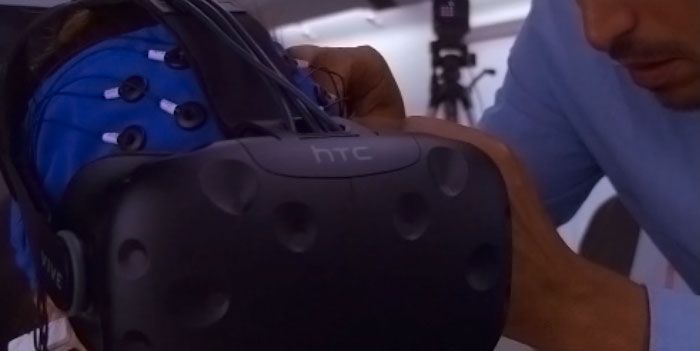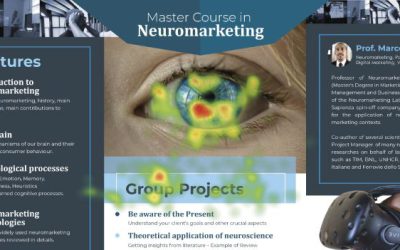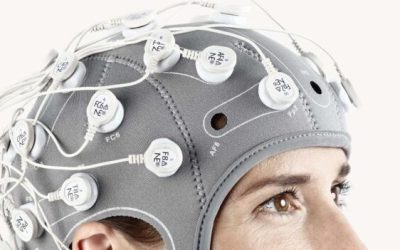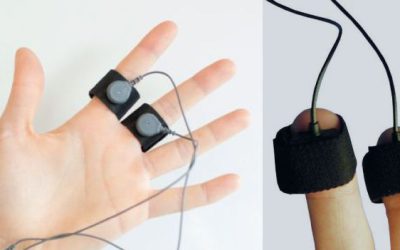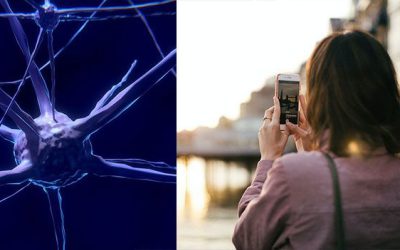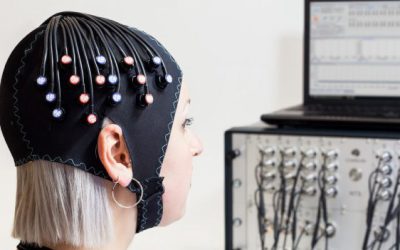A study conducted in Virtual Reality (VR) using Neuromarketing techniques demonstrates how the manipulation of perfumes is able to change our perception of a travel experience on a cognitive level.
The study, conducted by BrainSigns and published in February 2021 in the journal Brain Sciences, involved 42 participants who were asked to wear an HTC Vive headset in order to be able to take part in two travel experiences from Rome to Milan on a high-speed virtual train.
During the whole experience, the brain activity of the participants was monitored through the electroencephalography (EEG), a technique through which it is possible to quantify the cognitive resources used by the participants in processing the surrounding environment and the most significant events of the experience .
Before taking part in the two travel experiences, the participants were divided into two groups:
- The first group was exposed to the scent of lavender
- The second group was exposed to the lemon scent
The aim of the study was to investigate, by comparing the brain responses of participants exposed to the two different groups (“lavender” and “lemon”), any differences in the deployment of cognitive resources during the travel experience.
Why “lavender” and “lemon”?
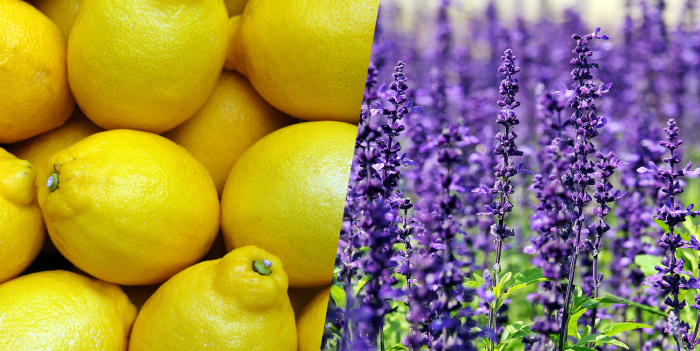
The scientific literature has amply demonstrated that lavender and lemon have opposite effects in terms of relaxation / activation. In particular, lavender is an aroma that tends to relax the individual, while lemon tends to stimulate/activate.
Furthermore, the lemon aroma, traditionally employed in detergents for cleaning (e.g. cleaning of trains), represents an aroma congruent with the experimental context.
Results of the study
The results of the study showed that people exposed to lavender scent had significantly greater frontal theta band activity than people exposed to lemon scent during the two virtual train journeys. This brain pattern indicates that the participants exposed to the lavender scent have dedicated more cognitive resources in order to process the surrounding environment and some significant events of the experience (e.g. automatic audio messages relating to the communication of a delay).
This result clearly indicates how a state of calm or relaxation generates the ideal conditions for the deployment of cognitive resources oriented to the processing of information provided by the environment.
Why carry out a Neuromarketing study in Virtual Reality?
- It allows to keep under control every variable of interest, reducing the noise normally produced by various environmental factors.
- It allows you to study stimuli that would not be possible to investigate in the laboratory or in a real environment, mainly due to the very high costs. For example, let’s imagine we want to test the perception of the interior of a new airplane … how much would it cost to do it in a real context?
- Scientific research has shown how carefully designed virtual environments are capable of generating real emotions and mental states.
